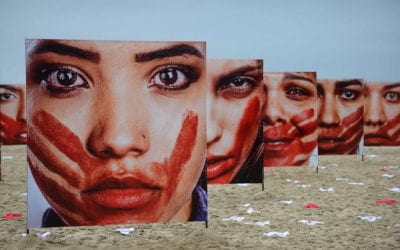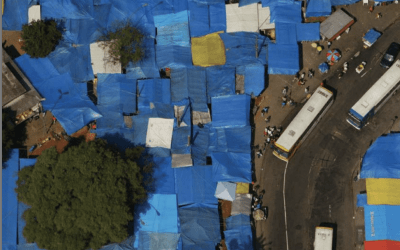The Black Movement
Revising the Story
This summer I traveled to Brazil for a major international gathering of scholars, political leaders, poets, and students at A Conferência de Intelectuais da África e da Diáspora (The Conferences of Intellectuals from Africa and the Diaspora) in Salvador, the capital of the state of Bahia in the northeastern region of Brazil. A Tarde, a popular Bahian newspaper, called the event “o mais importante evento de e para a comunidade negra brasileira ocurrido nos últimos anos[the most important event by and for the black Brazilian community in recent years].”
Only minutes from my hotel window, members of the Movimento Negro (Black Movement) raised placards that read “COTAS RACIAIS JÁ.” (Racial Quotas Now), chanting “Contra as cotas, só racista” (Only the racist is against quotas). They demonstrated in support of quotas that would guarantee increased access to Brazilian institutions of higher education for Brazilians of African descent. For the Movimento Negro, the conference represented an unprecedented commitment to the pursuit of racial equality and they took advantage of the chance to bolster political support for an increasingly controversial cause.
The scene felt like stories my parents and grandparents had told me about picket signs, marches, sit-ins, and Freedom Riders. I realized I was looking into the face of imminent change in Brazil. And, just as it had been for the United States, a change that had much to do with the politics and problems of race. The fact of race and racial discrimination in Brazil was now receiving national attention, a fact that challenged the popular idea that Brazil was a “racial democracy,” as Brazilian sociologist Gilberto Freyre had claimed in the early thirties. As a literary scholar I would have to think about the way literature fit into this change.
The final day of the conference featured a panel called “Vertentes Côntemporaneas nas Literaturas Africanas e Diaspôricas” (Contemporary Developments in African and Diasporic Literatures). Afro- Brazilian poets Esmeralda Ribeiro and Conceição Evarista and others read their work, speaking of slavery and continents, dreams and poetry. I realized more than ever before that my doctoral research in the area of Afro-Brazilian literature would have to consider this tension between a legacy of slavery and a loyalty to the idea of a Brazilian racial paradise. It would have to recognize the challenges to and revisions of the racial, cultural, and literary history of Brazil.
As it grew out of and contributed to this change, the poetry of many Afro-Brazilian poets at once questioned and revised the story that had dominated Brazilian scholarship and literature since the nineteenth century. They called attention to a history of racialized marginalization. At the same time, these poets used their words to legitimize the place of African descendants in a Brazilian nation. In short, they wrote to rewrite history. My responsibility, then, would be to reread it.
Spring 2007, Volume VI, Number 3
Monique-Adelle Callahan is a Ph.D. candidate in Comparative Literature at Harvard University. Her research focuses on the intersections of the African American, Afro-Cuban, and Afro-Brazilian poetic traditions. Monique was a recipient of a 2006 DRCLAS Summer Travel Grant and traveled to Brazil as a Jorge Paulo Lemann scholar.
Related Articles
Violence Against Women in Brazil: Public Policy and its Implementation in Rural Areas
English + Português
Eight o’clock in the evening—it’s time to gather and watch the national news program in Rio de Janeiro, Brazil.
2022: Uma Encruzilhada Histórica
English + Português
Este segundo turno da eleição 2022 no Brasil é um embate histórico entre visões de mundo. Entre concepções de vida e seus sistemas de valores. Você vai eleger (etimologia: escolher) em que mundo seria concebível viver.
Editor’s Letter: Brazil
Brazil is different. Brazil is huge. Brazil is colorful. Brazil is magic. In Brazil, the people speak Portuguese instead of Spanish.




